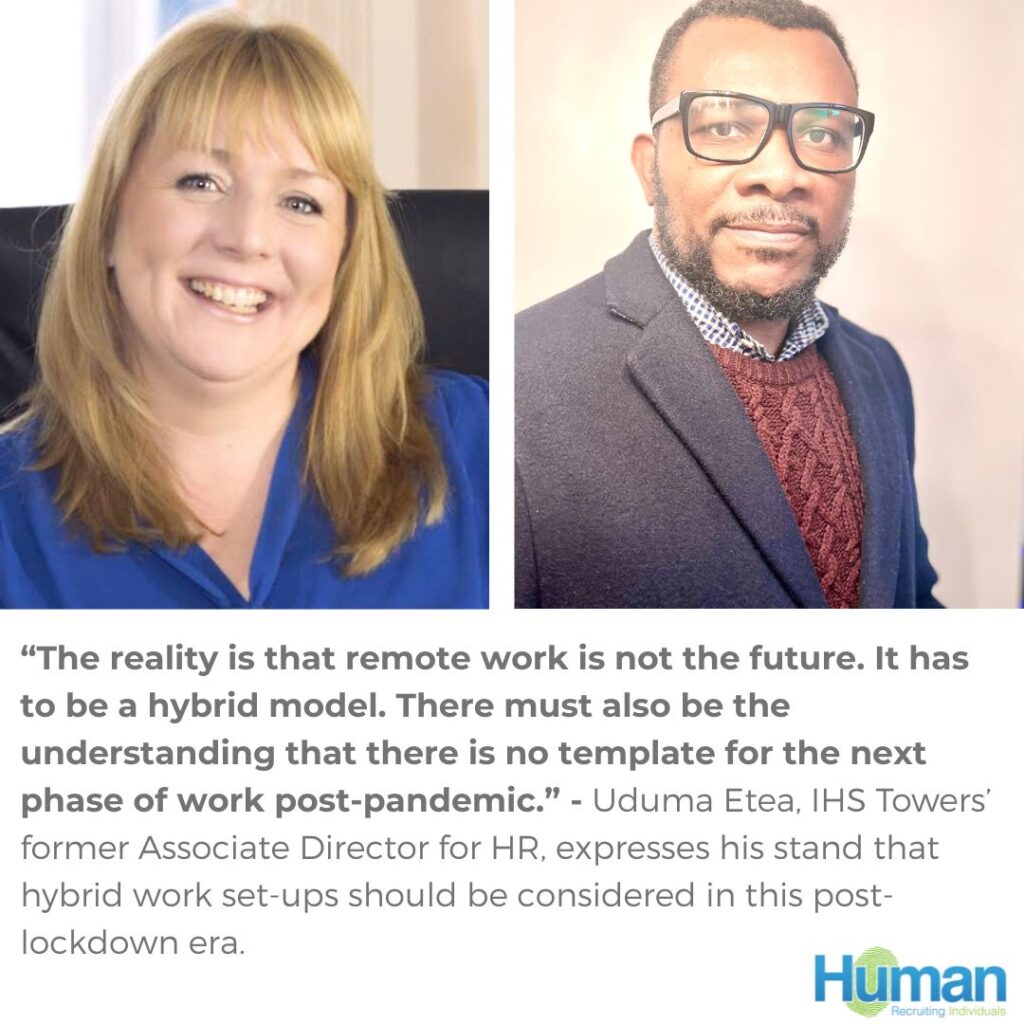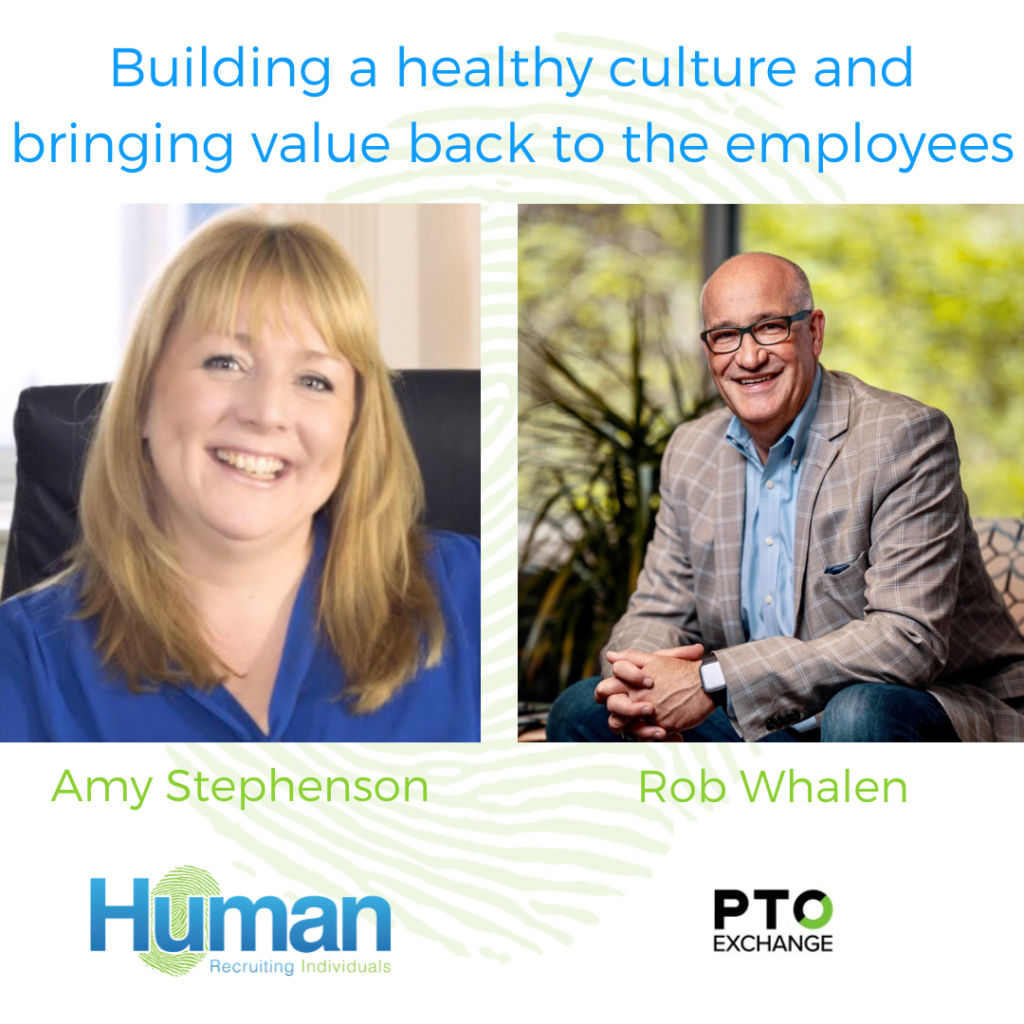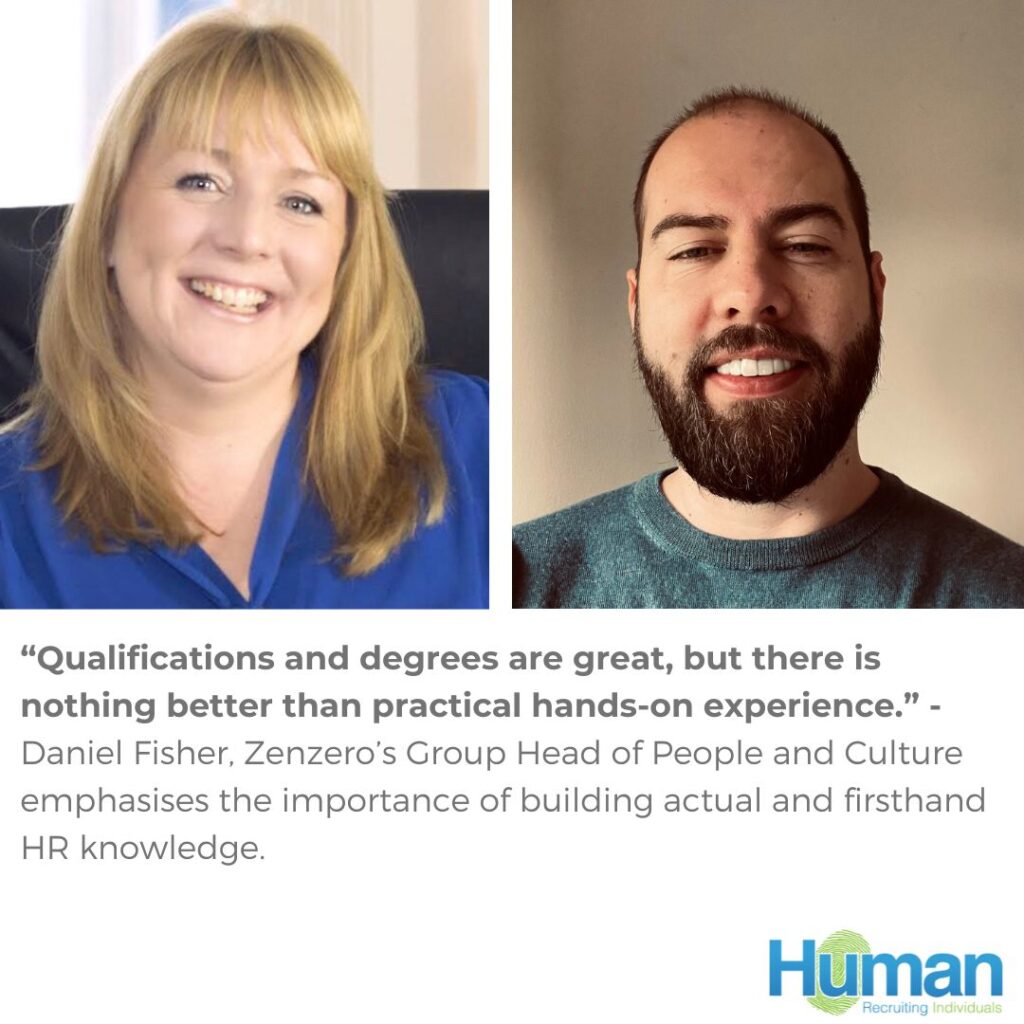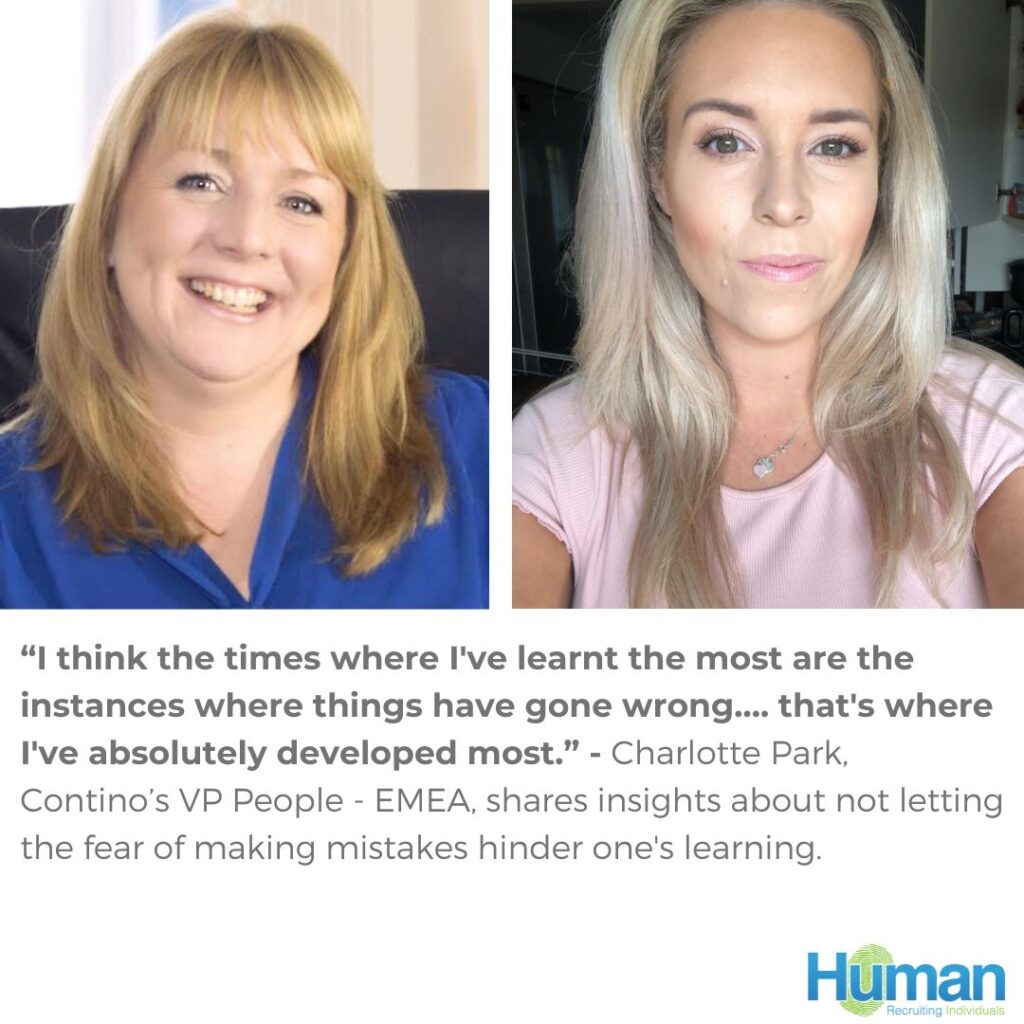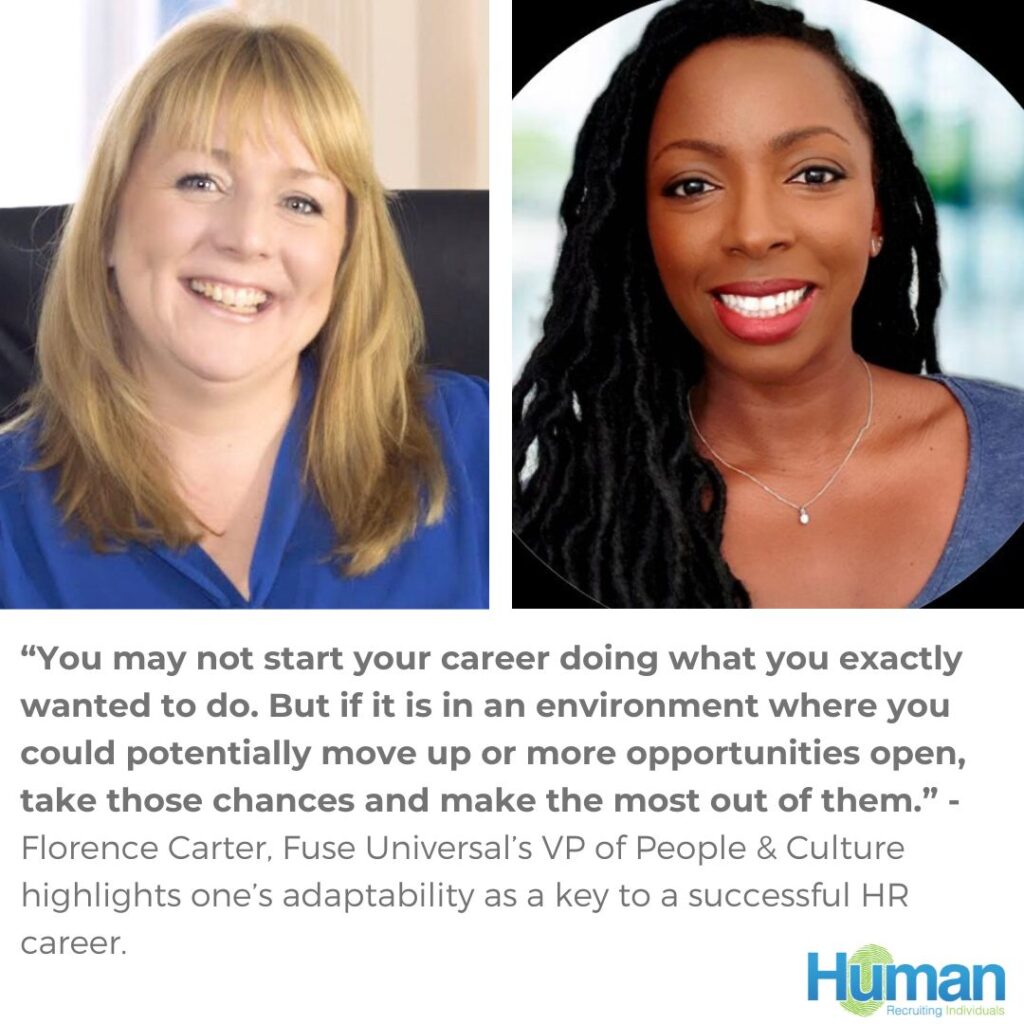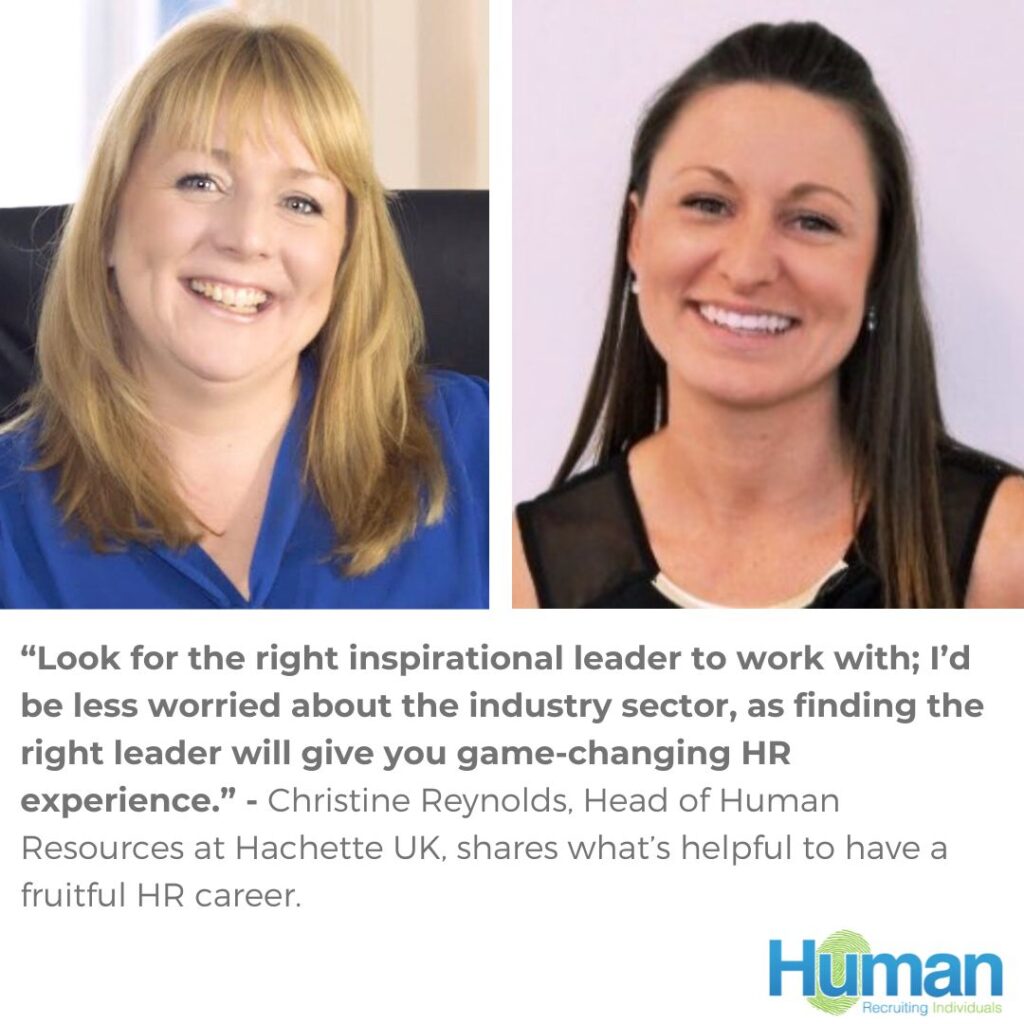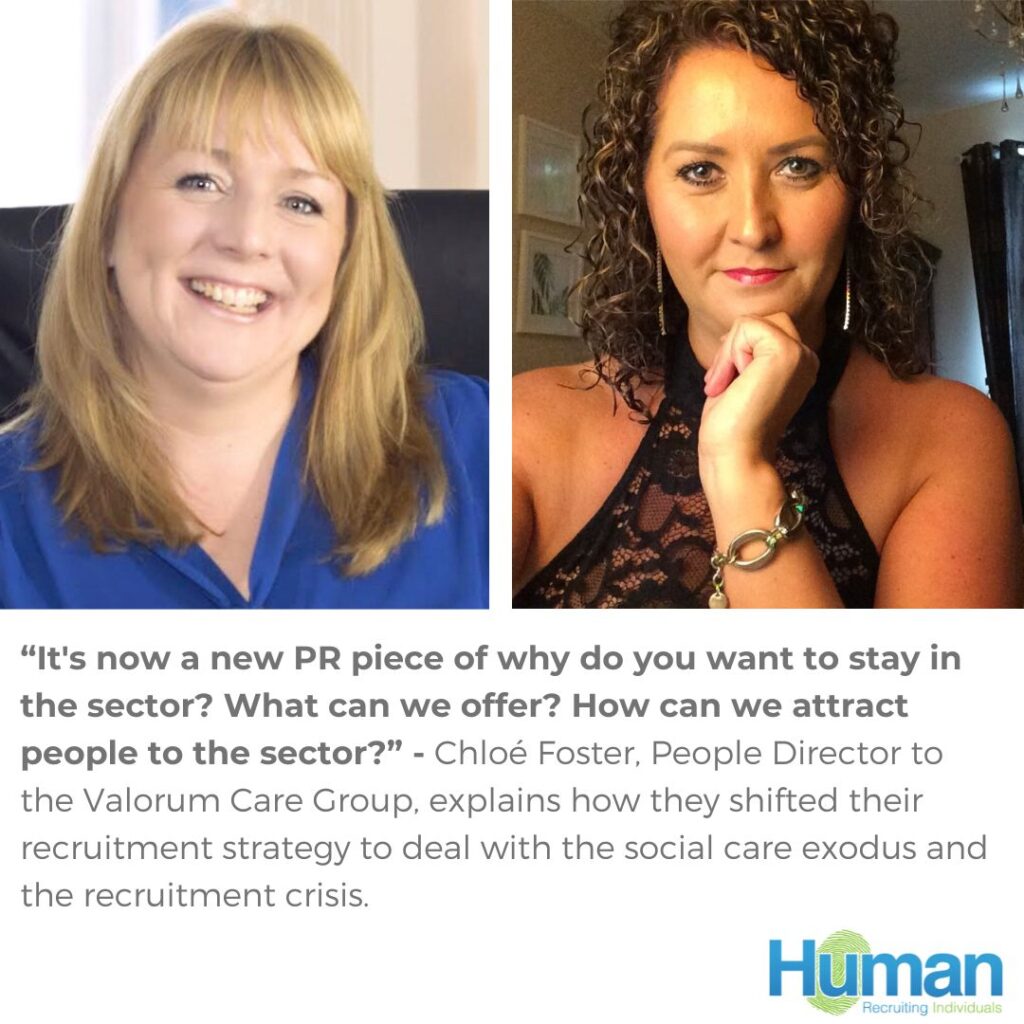“Get certifications. It actually helps in giving you more content and knowledge beyond the academic degree.” – Interview with Uduma Etea
“The reality is that remote work is not the future. It has to be a hybrid model. There must also be the understanding that there is no template for the next phase of work post-pandemic.” – Uduma Etea, IHS Towers’ former Associate Director for HR, expresses his stand that hybrid work set-ups should be considered in this post-lockdown era. As part of our commitment to support candidates in developing fulfilling careers, we’ve invited HR Leaders from a wide variety of organisations to share their insights on building a career, the challenges they face and what advice they would share with those hoping to follow in their footsteps. This week, we had a great conversation with Uduma Etea, the former Associate Director for HR of IHS Towers, one of Africa’s largest telecommunications infrastructure firms. Uduma has made his mark as an HR practitioner and leader in Nigeria and England, with 2 decades of working in diverse industries like financial services, construction and real estate, aviation, retail, telecommunications and management consulting. With his passion for people, Uduma firmly believes that his role is not just to help them land jobs but to support them to find their career purpose and fulfilment. Can you share with us your journey in pursuing a career in HR? I’ve always been told by my mom since I was a child that I have a compassionate spirit. And I chose to study psychology at the university because I believed it will give me the capacity to understand people better. After getting my degree back in 1997, there was no HR yet then; it was more personnel management. My first jobs were more into banking operations but I was constantly looking out for the chance to move into personnel management because I really felt like that was my calling. Within a short while, I was fortunate enough to get that break. I got into personnel management (now HR) in 1999 and never looked back. My first big break was in the United Bank for Africa (UBA Plc) where I led the employee services team. It was a global organisation and I was able to interact with employees across the group. From the UBA, I was headhunted to be the head of HR operations of Resort International, a firm in the real estate, construction and infrastructure sector. The founder wanted to put proper policies in place because the HR admin system wasn’t really as fine-tuned at that point in time. From there, I was also able to join consulting firms like Phillips Consulting and later Total Business Solutions. These experiences helped hone my rough edges because I felt like I may have the technical know-how but wasn’t as ‘refined’ in my presentation skills and HR theoretical knowledge back then. I was then again headhunted to join Aero Contractors. This was an airline undergoing a labour crisis then, with the unions going on strike. I was interviewed and the CEO found my ideas/ recommendation to be strong and powerful. About two weeks after I came in, the strike was put off because we had an engagement on the ground and I was able to help resolve the union issues. What challenges are you currently facing in your career, whether professionally or personally? I think the debate about working at the office versus working remotely is a challenge, especially after the pandemic. The reality is that remote work is not the future. It has to be a hybrid setup. There must be the understanding that there is no template for the next phase of work post-pandemic as we navigate the new world of work, and ways of working. We must look at the context of the organisations location and the circumstances. For example, there are those employees that are able to deliver their best when working remotely. But there are also roles where face-to-face interaction is more powerful. Like in the case of new hires, it would be better for them to do some face-to-face interaction to understand the culture and ways of working with their colleagues. New managers must also be able to build that personal connection with their employees. Also, there must also be humanity and empathy in the organisation as well as work design. I always tell people I work with that the first thing I do is to create initiatives to build an environment where employees can bring their whole, authentic selves to work. For example, if someone is not able to come to work at the designated 8 o’clock schedule, let us stretch our understanding to see and understand the reasons why they were unable to, not just invoke policy. When employees feel valued, understood and cared for, then they’re able to really thrive. And when employees thrive, the business thrives as well. Personally, I consider networking to be one of my challenges, especially in the early years of my career. I was the type to come to the office, sit at my desk and do my work. I don’t usually walk around to talk to people, or to put myself in people’s faces so to speak. That wasn’t my style. But I realised later on that the higher I go on the corporate ladder, I should have done more of that; networked more in the office. I probably missed career opportunities because I didn’t have much interaction or engagement with more Senior Management. Also, I used to struggle with work-life balance. That was quite a dilemma because there was a time when I was away from my family for months on work assignment and I was not able to spend much time with my first child. I was having a hard time connecting with my son, and as you know teenagers tend to drift away pretty quickly. So I made sure to catch up and invest time to be with him when I came back. I was lucky enough to have another chance to reconnect with him, and I know others may not be

